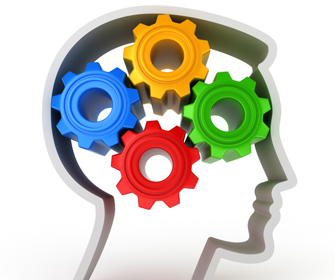The Self-fulfilling Prophecy - Re-train your Brain!
The self-fulfilling prophecy is a simple thing to understand - everything that we do, say, and expect of ourselves will eventually happen in our life. That means that if we think and act in a positive manner then positive events will surround us and we will manufacture ways to achieve those positive outcomes. The bad news is that this works the same for both positive and negative thoughts, so we need to re-train our brain in order to master the art of creating positive self-fulfilling prophecies. Because our brain is a complex machine that likes to prove itself right it will always be on the lookout for ways to prove our internal "self talk". If it cannot find an obvious example as proof then it will create what it needs.
In any situation if we talk negatively to ourselves, downplay our skills, or expect failure, then we have already stacked the odds against us. We have sabotaged ourselves because we have given our brain the green light to prove all those negative thoughts. The big problem though, is that because our brain is brilliant at ignoring information it deems as irrelevant, while it is trying to prove our negativity countless positive events zoom straight by without notice.
Therefore, when a negative outcome finally occurs our brain is vindicated and our original negative thoughts feel justified - "I knew I was going to fail all along". This is the self-fulfilling prophecy. Luckily it's not all bad news. We can use positive thoughts to create positive results with a little bit of simple brain training.
Training the Brain
When we perform physical training we are, in essence, teaching our muscles how to react to various stimuli. If we bust weights at the gym 3 days a week, our muscles become stronger, and when confronted with a test of strength in an everyday situation our muscles perform the required physical output automatically.
Our brain is like this, but a thousand (if not a million) times more efficient. Our brain does not need training 3 days per week for several months to adjust to stimuli. In fact our brain is such a wonderful tool that it can automate basic actions immediately after learning them once. Just once! Complex actions take longer but this whole procedure is best illustrated with an example. It is a long example but bear with me as it demonstrates the point beautifully:
Example: Learning to Drive (The Brain on Auto-pilot)
Cast your mind to when you first starting learning to drive. You read the various manuals and road rules first to prepare but it is not the same as actually doing it is it? The first time you drive you need to remind yourself of every step and it feels like there is so much to learn; "sit down, buckle seat-belt, key in ignition, foot on pedals, check gear, check mirrors, start car…".
After a few lessons of driving along deserted streets in first gear you have mastered those little skills and are ready to move on and learn more. But what happens with those early little tasks? Do you just get an ever-growing list of tasks you need to check off and remind yourself of every time you drive? Luckily, no. Your brain recognises those early tasks are simple and easily repeatable so it takes control away from you and puts these tasks in its autonomous section, allowing you to be fully focused on learning the next set of skills. And this process of locking tasks away continues throughout the entire learning experience. Pretty cool stuff hey?
Fast forward several years and now you can drive a car without even really thinking about it. In fact people can often drive from one place to the next, changing lanes, making turns, stopping at lights, and not even remember the trip! This happens because the brain is now on "auto-pilot", automating everythng it can so that your valuable resources can be better spent on other things - like worrying if you need to pick up milk, or if you should have chatted to attractive girl at lunch.
With any task we perform, if it is easily repeatable, our brain can take control and begin to make it happen autonomously. It is a fantastic skill to have but it comes with a pretty big problem - our brain does not distinguish between good or bad actions when automating. If you think negative thoughts, or create negative situations, in a repeated manner then your brain starts to automate it. It assumes that because the action has been repeated several times it can be locked away and taken care of automatically. I don't know about you but I don't want my brain putting negative thoughts on auto-pilot!
Unfortunately most people do not understand this, and thus they use the wrong technique when training their brain to automate skills. If an Olympic weight-lifter was training with poor technique there would be a long list of dire repercussions, including endangering their life. But in physical examples like this there is always the possibility of enlisting help - getting someone else to observe your technique and provide feedback. In the sport of "brain training" there is no such thing. You need to be your own coach.
Training (more like "re-training") the brain is one of the most important aspects of Positive Happiness, and if you start acting like your own personal coach - cheering yourself on, observing your own mental "technique" and providing motivation to stick to your positive training regime - then you are well on the way to discovering the hidden happiness in your life.

